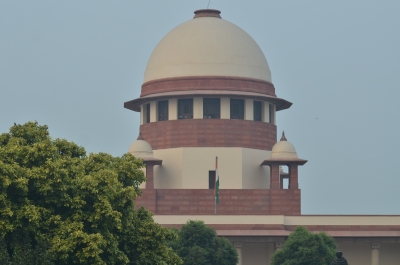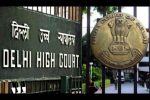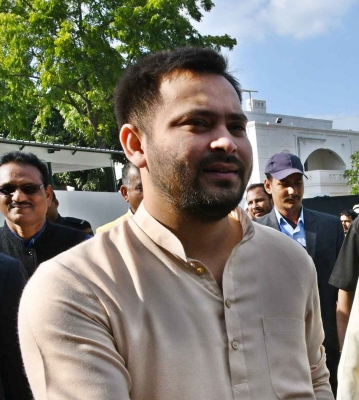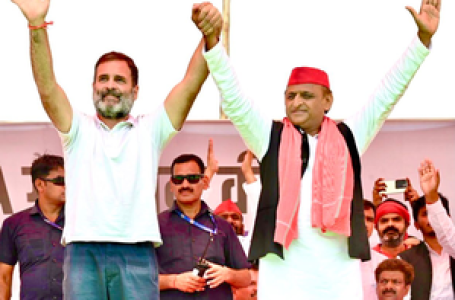
New Delhi: When the British retreated from India, they left behind a labyrinthine mess for Indian leaders to clear out from the nooks and crannies of this newly formed republic. Some matters had to be addressed immediately; others were prioritised accordingly.
The legacy of the legal system India inherited from its colonial oppressors has been one of great significance. Not in a position to initiate an overhaul at the time of Independence, the legal system retained its character to a great extent, notwithstanding the fact that about 1,200 archaic laws were abrogated in a swoop. Several more British Raj laws continue to remain operational.
The Indian Penal Code (IPC) was enacted in 1860 by the British Raj. This is the official criminal code of India that covers all substantive aspects of criminal law. Chapter IV of IPC deals with offences against the state. In that chapter is Section 124A, which was introduced later in 1870.
The impetus for its introduction was the fear that Muslim preachers in the subcontinent would rise in rebellion against the British government for suppressing the Wahabi movement at that time.
This section then came to be used as a means to suppress activists campaigning for India’s Independence. Lokmanya Tilak and Mahatma Gandhi were some of the famous people to be charged and imprisoned under this.
Section 124A of IPC is what we commonly know as the ‘Sedition Law’. Even though this term has faded out constitutionally, this legal provision remains in existence as a curb on the Fundamental Right to the freedom of speech and expression.
A decade after Independence, the Law Commission of India in its fifth report on British statutes applicable in India suggested that although India could have a new legal code, if a British statute is useful, a corresponding Indian statute with necessary provisions from the existing law could be formulated as a replacement.
In 1962, the Supreme Court had interpreted the section to apply only if there is “incitement to violence” or “overthrowing a democratically elected government through violent means”. During the tenure of Indira Gandhi, in 1973, sedition became a cognizable offence for the first time in Independent India. This permitted arrests to be made without warrant.
In 2016, Section 124A of the IPC stood glaring at some senior students in Jawarlal Nehru University as they expressed their thoughts in favour of Afzal Guru, a convicted terrorist. Arguably, it would have been much more constructive to give these students educational counseling and set an example in the education system, instead of incarceration that was greatly sensationalised.
Since then, many have been jailed under this provision. In July 2017, the National Crime Records Bureau recorded 165 arrests on the ground of sedition in the previous three years.
Since then, several arrests have been made on several pretexts. The common factor in all these cases is that the people arrested are educated, and have exercised their right to freedom of expression in an impactful manner.
On May 11, 2022, this law was temporarily put on hold by the Supreme Court for a re-examination. The need for such a move comes in the light of its abusive use against the exercise of Fundamental Rights to Freedom, particularly in regard to speech and expression, and to practice any profession. This is the very reason this colonial remnant is a draconian law.
Other colonial remnants
The sedition law is but just one colonial law that has overstayed its welcome. Of the other such laws, which were based on European norms prevailing during the British Raj, some that remain have the potential to turn draconian.
Dramatic Performances Act of 1876: In the 19th century, theatre was extensively used in India as an instrument to express rebellion against colonial rule. Seeing the obvious threat, the Dramatic Performance Act was introduced in 1876.
This law prohibited dramatic performances of a “scandalous” and “defamatory” nature which could excite people’s feelings against the government in power.
With the exception of Delhi and West Bengal, many states introduced and amended this law after Independence.
In 2014, the Law Commission, in its 248th report, recommended the repeal of this law stating that, “It was enacted during the colonial era and extensively used to curb nationalist sentiments propagated through dramatic performances. It has no place in a modern democratic society.”
In 2014, Madras High Court pronounced that the Tamil Nadu Dramatic Performance Act, 1954 should be repealed as it is violative of Article 14 and 19 of the Indian Constitution (Fundamental Rights to Equality and Freedom respectively).
Blasphemy Law: Attacking freedom of speech from another side, Section 295A of IPC came locking horns with several published books and content, banning certain works on the grounds of offending religious sentiments.
This law came about when the undivided Punjab was in the throes of a religious ferment in the 1920s. The repeal of the Press Act 1910 by Lord Reading had led to a sudden spread of publications that inflamed communal passions. One such book was ‘Rangeela Rasool’, which contained information about Prophet Mohammed’s personal life and offended the Muslims.
The author was charged under Section 153A of the IPC (which pertains to an offence in a place of religion). The Lahore High Court, while finding the accused not guilty violating this provision of the law, recommended that a clause be added to Section 295 of the IPC which made it an offence to publish pamphlets with content that might hurt religious sentiments of any community. The British Raj acted at once on the recommendation and introduced Section 295A.
Law on Homosexuality: The criminalisation of homosexuality, defined as a sexual activity that went against the “order of nature” by Section 377 of the IPC, dates back to 1860, when the law came into effect. The European origin of this law goes back to the 12th century, when prostitutes as well as people engaging in sodomy were seen as possible carriers of “contamination”.
Garnering much media attention in 2009, Delhi High Court was the first in India to decriminalise homosexuality. In 2013, the Supreme Court overturned this verdict, but in a landmark judgment in Navtej Singh Johar v. Union of India in 2018, the apex court decriminalised consensual homosexual intercourse by keeping out of the purview of Section 377.
Personal Laws: A highly political and emotive issue today, they go back to the time of the Mughals, who made it a practice not to interfere in Hindu family, marriage and succession laws. Warren Hastings, the Governor-General of India, was the first British administrator to attempt to codify Hindu laws in matters of marriage, divorce, inheritance and succession. A different law for Muslims took shape with the legislation of the Muslim Personal Law (Shariat) Application Act, 1937.
Beside these select laws, there happens to be some other operational laws that are not disputable per se. Some of them are:
Indian Police Act, 1861: Although Maharashtra, Gujarat, Kerala, and Delhi have their own legislation in this domain, the laws otherwise are derived from the original Act of 1861.
Interestingly, even the khaki uniform that we associate policemen and women with was introduced by a British officer, Sir Harry Burnett Lumsden, in 1846-47 as an effective camouflage, unlike the old scarlet uniform of the East India Company, in dusty, rocky terrains during the Afghan campaigns.
The word ‘khaki’ originates in the Persian word ‘khak’, which means ‘dust’. The idea propagated then was that the person who wore khaki was brave enough to turn into dust in the line of duty.
Salt Cess Act, 1954: The landmark event of Salt Satyagraha was in protest against the salt tax of the British Raj, yet the Salt Cess Act, 1954, which is an example of how the colonial mindset persists, remains in effect. This tax is levied on salt factories, owned by both private entities and the government.
In 2013-14, it was estimated that the total tax collected under this Act was half the cost of collecting it.
Some of the other frequently used laws of colonial origin are the Transfer of Property Act, 1882; Indian Evidence Act, 1872; and the Foreigners Act, 1946, to name a few. Their continued presence is indicative of how deeply entrenched colonial laws are in the Indian legal system.Azadi March ends as Imran gives 6-day ultimatum to announce polls. IANS



















